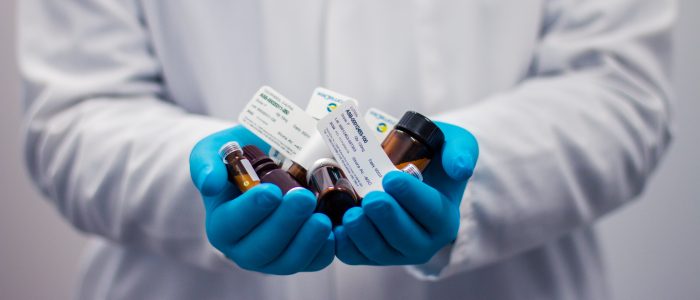What if we could combine two superpowers?

I have a friend who’s a pharmacist. She’s passionate about ensuring people take their medicines correctly, so that they get the full benefit from them and stay as healthy as possible. But she knows that this often doesn’t happen: for example, a mere 7% of people who have an inhaler for their asthma know how to use it properly.
In fact, the NHS loses around £300m per year on medicines that are wasted after being prescribed by GPs (that is, in ‘primary care’, not hospitals) – and another £530m on hospital admissions caused by medication errors and adverse reactions (see a 2018 report by the King’s Fund). Of course, that’s an unbelievable amount of money to simply lose – but it also represents thousands of individuals whose lives are affected.
So my friend decided to try something. She’s a member of a church that runs a community hub – a centre with a lot of different activities going on, from English classes to exercise groups, a clinic for teenage mums, a drop-in café and much more. With all the correct support and insurance, she decided to trial a ‘medicines advice service’, where she would visit the hub once a week, in her spare time, and just be available for people to ask questions about their medication and health. Not prescribing anything, not treating people, but just some friendly, qualified advice.
The time came to let people know that the service was about to start, so she went to the hub every day for a week to meet the different groups and tell them about the offer. This is the text she sent me halfway through the week:
Interest from staff and service users has far exceeded my expectation … Every group is so different from the next, from the go-getter Pilates ladies … to the men’s group from whom I extricated myself after 25 minutes – because they had so many questions. I’ve had significant in-depth medical-themed chats with over 20 people. Plus 5 have booked future appointments to see me…and it’s only Wednesday! There is clearly a need for friendly medical advice in this setting where people are at ease.
I couldn’t decide whether to be shocked or not – but I suppose it shouldn’t be surprising that taking health advice to where people are, rather than hoping they will make an appointment with mainstream services, is likely to be popular. And when it’s just a matter of a couple of questions that someone might have (questions which they might even view as ‘stupid’), the chances are they might not make an appointment at all, not wanting to take up their own or professionals’ time – even if their health suffers as a result.
At the other extreme, there are people who lack any source of advice and, in their anxiety about their health, turn to services like A&E far more often than they need to. Another friend who works in a hospital told me that just one patient with asthma had visited A&E 170 times over the course of a year, mainly because it was a place where they could trust they were safe whenever they felt unwell. What if people like this patient had somewhere else they could go, with people they trusted to give them the right help?
Just these couple of small examples have highlighted to me that if we can think of more ways of taking what health professionals have to offer and getting it out into communities, we could make a real difference to people’s health. It’s not all about relying on people to volunteer their time – but there is something that can be achieved by someone in a volunteer capacity that can’t always be done within the strictures of mainstream services. And we’re going to need to think creatively if we’re going to solve the issues the health and care system faces.
Faith-based organisations represent one of those important ‘gathering places’ where people and health professionals can interact in a safe environment. Perhaps what’s really needed are for a few more people who have both professional expertise and connections with communities to see how they might bring the two together. Not that this is without some personal cost: I will leave the last word to my pharmacist friend:
The advice and support given seems to be well received. I’m pretty knackered and will be going back to work for a rest!


